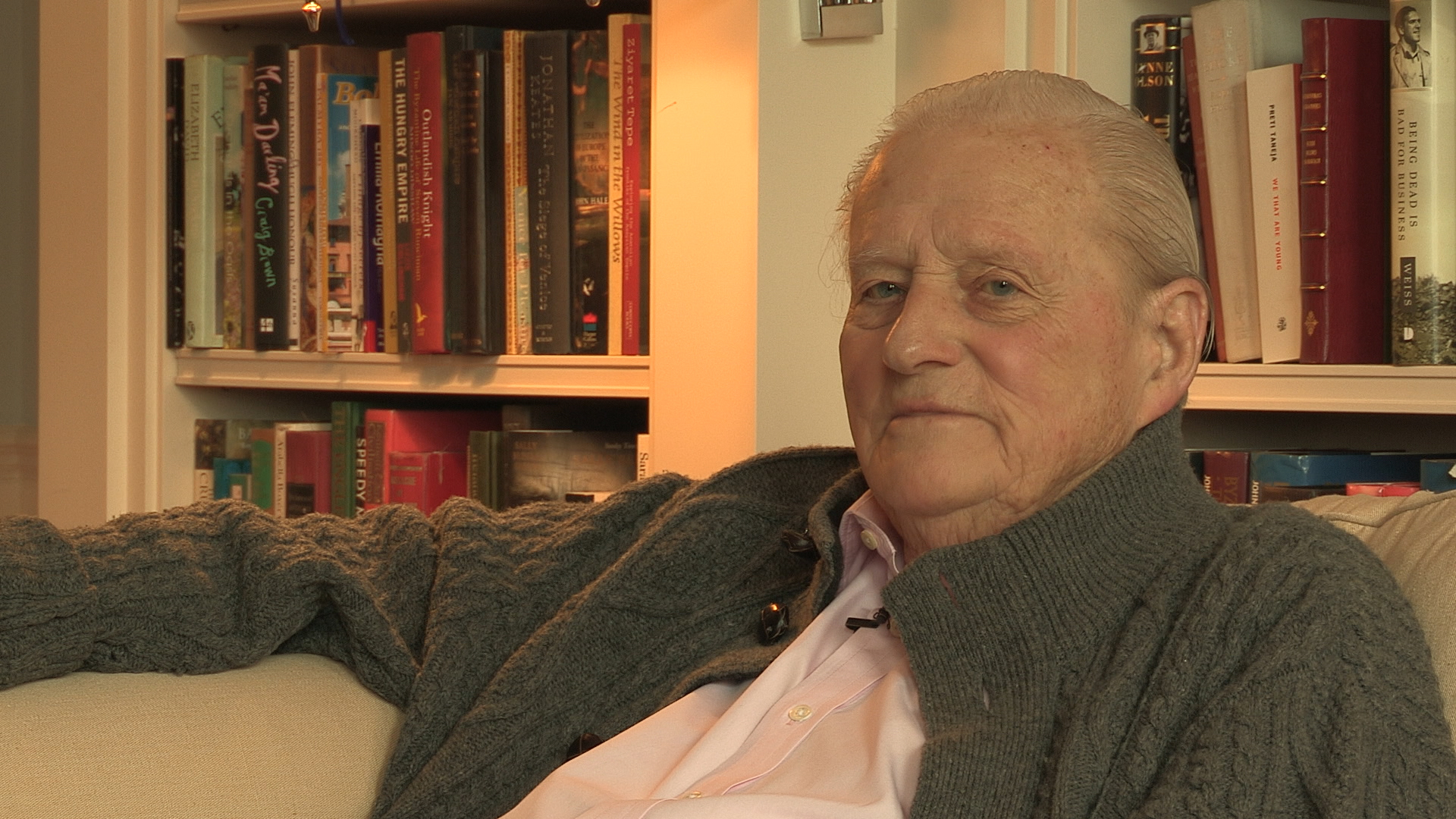NEXT STORY

Napoleon's Waterloo 'victory'
RELATED STORIES

NEXT STORY

Napoleon's Waterloo 'victory'
RELATED STORIES


|
Views | Duration | |
|---|---|---|---|
| 111. Filming in Sicily | 48 | 02:22 | |
| 112. Pulling rank | 41 | 02:16 | |
| 113. Making documentaries for the BBC | 39 | 03:06 | |
| 114. Napoleon's Waterloo 'victory' | 56 | 03:22 | |
| 115. Ordering egg and chips in Harry's Bar | 49 | 02:54 | |
| 116. A sudden change of destination | 36 | 01:46 | |
| 117. Acrobatic cameramen | 37 | 03:54 | |
| 118. Under a spell | 36 | 03:26 | |
| 119. My Word trumps my words | 43 | 01:41 | |
| 120. Round Britain Quiz | 41 | 01:55 |


So, that was the first one we ever did. That was the only one I ever did in black and white. The next one we did was in colour and that was The Fall of Constantinople to the Turks in 1453, the capture of Constantinople. That was great fun, because, you know, the walls of Istanbul are still there, looking absolutely wonderful, you know, battered, but still standing, bloody, but unbowed. And it's a wonderful story, the heroic story of one of the great sieges of history. And that one went very, very well and then I think, after that, we sort of rather got into the swing of things and the BBC wanted more. And we did... what else did we do? We did Cortez discovering Mexico. That was very, very good. That was 1968, I remember, because it was the end of the Olympic Games in Mexico. It was the only way the BBC could afford to have a camera crew there – it was there already, it had just done the games, and then it went on to do our film immediately afterwards.
And Mexico was a great success. We loved Mexico. So, subsequently, we did a second one in Mexico about the Emperor Maximilian, you know, who was sent out to be emperor of Mexico. He was Franzs Joseph… the Emperor Franz Joseph's younger brother and he was murdered. There was a sort of left-wing party who were going to take over the Republicans. And they just captured him and murdered him, but it's, again, it's a terrifying story and his... because his wife went back to Europe to get help and then went mad and they couldn’t get her out of the Vatican and she lived in Rome in a hotel room with hens tied up to the chairs and things because she was afraid of being poisoned and she went and got her own water from the Trevi Fountain every day, that sort of thing. And so that made a very good story and then we did Napoleon's Hundred Days, from Elba to Waterloo. And that was really a gift, because Napoleon, you know, when he went up to Paris from Elba, when he escaped from Elba, went up to Paris, he knew that the Royalist army was going to be coming down the main road of the Rhone Valley, and so he took the mountain road to the east, through Grenoble, Sisteron, places like that, Digne, and every building at which he stayed the night, all the way up, is still there with a plaque, so you can follow exactly all the way, and, of course, it was ravishingly beautiful country. There are endless lovely pictures of Napoleon. Beethoven wrote the score and, you know, it was there on a plate.
John Julius Norwich (1929-2018) was an English popular historian, travel writer and television personality. He was educated at Upper Canada College, Toronto, at Eton, at the University of Strasbourg and on the lower deck of the Royal Navy before taking a degree in French and Russian at New College, Oxford. He then spent twelve years in H.M. Foreign Service, with posts at the Embassies in Belgrade and Beirut and at the Disarmament Conference in Geneva. In 1964 he resigned to become a writer. He is the author of histories of Norman Sicily, the Republic of Venice, the Byzantine Empire and, most recently, 'The Popes: A History'. He also wrote on architecture, music and the history plays of Shakespeare, and presented some thirty historical documentaries on BBC Television.
Title: Making documentaries for the BBC
Listeners: Christopher Sykes
Christopher Sykes is an independent documentary producer who has made a number of films about science and scientists for BBC TV, Channel Four, and PBS.
Tags: Constantinople, Istanbul, Mexico, Emperor Maximillian, Napoleon Bonaparte
Duration: 3 minutes, 6 seconds
Date story recorded: 2017
Date story went live: 03 October 2018